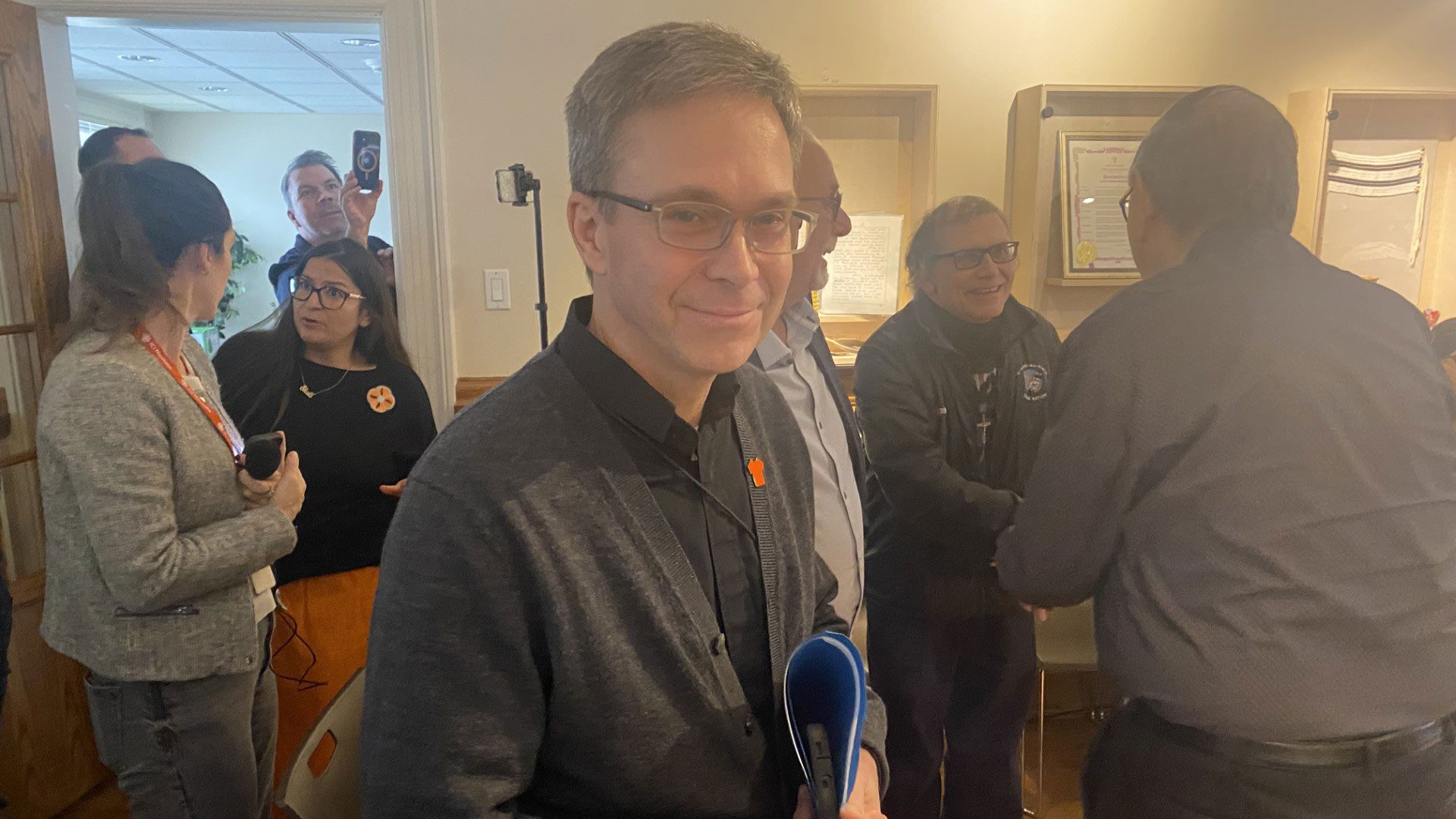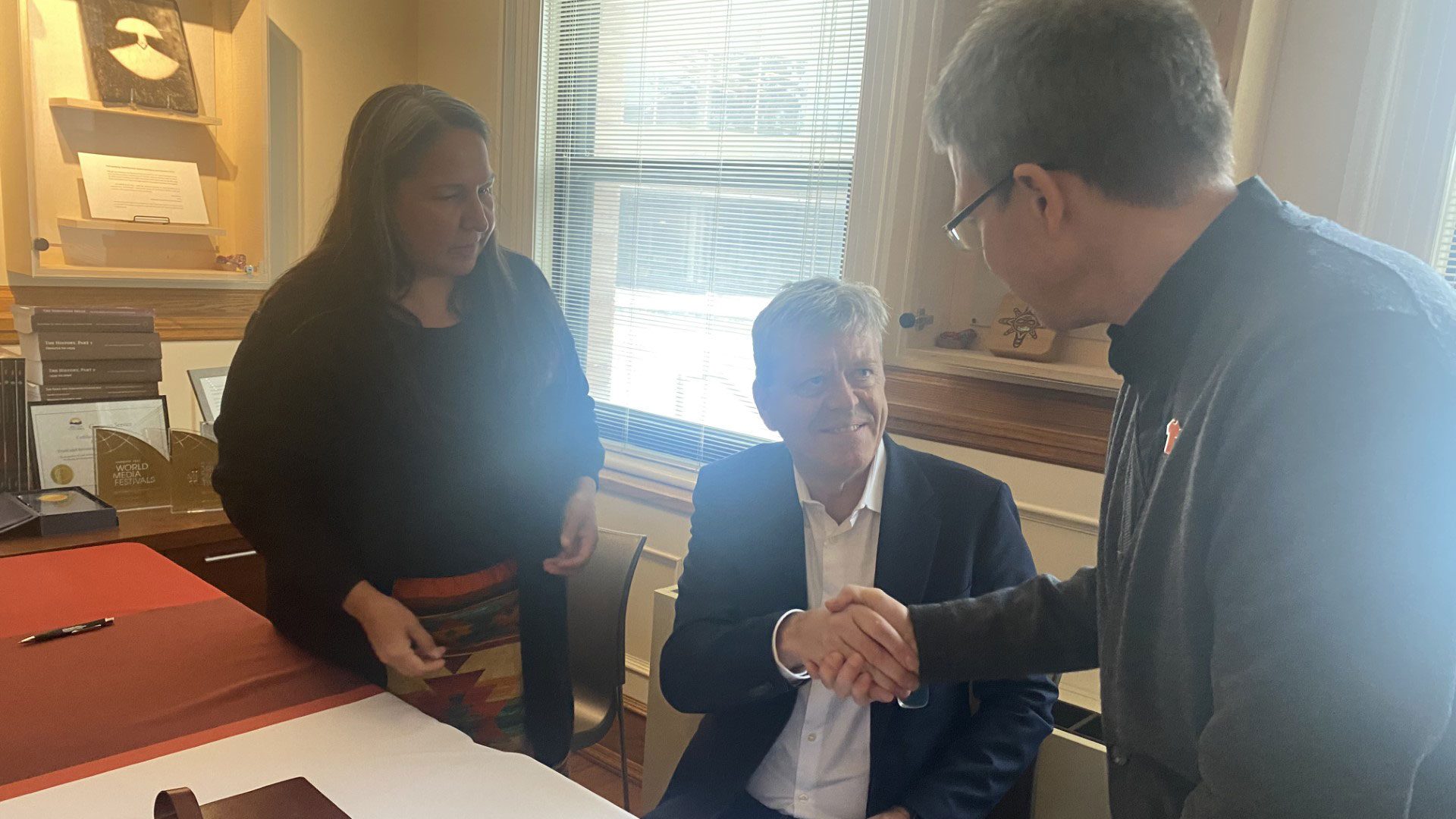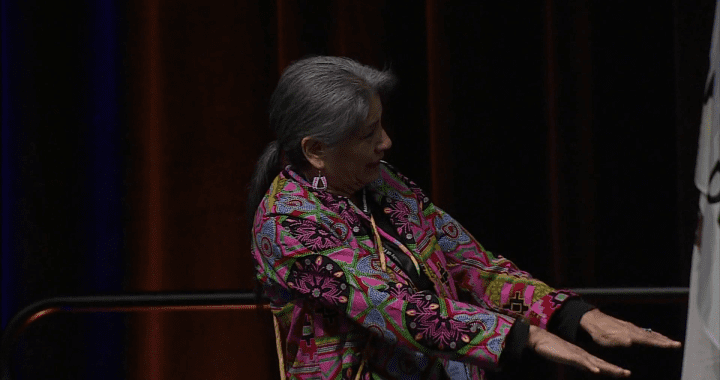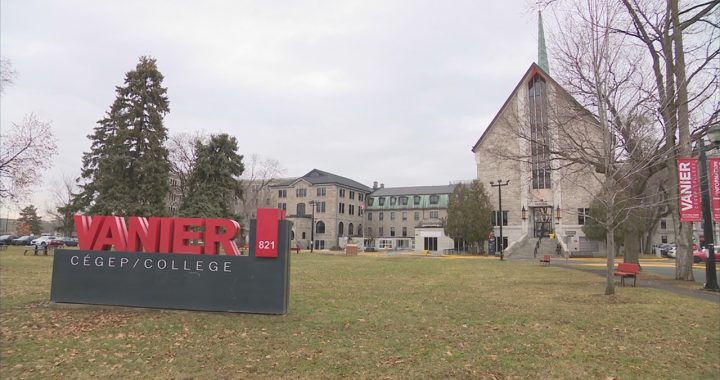The Catholic Church in Rome had to give its blessing to an “accelerated” agreement to share missionary priests’ records with the National Centre for Truth and Reconciliation (NCTR), says the leader of the Canadian Oblates.
“The Pope didn’t have to sign off on it but the general administration of the Oblates had to agree to release the records,” said Rev. Ken Thorson, who is based in Ottawa.
“It went to our headquarters in Rome where the Superior General and his counsel discussed our proposal.”
Thorson was in Winnipeg Tuesday to sign a supplemental agreement with NCTR to grant access to the personnel records of priests who worked at residential schools two years after they die instead of 50.
The Oblates will also fund an archivist position at NCTR for a year to help process the records.

The NCTR was created as part of a mandate from the Truth and Reconciliation Commission of Canada to collect, archive and protect records related to Canada’s controversial residential school system.
The network of schools that were run by churches and funded by the federal government were used to assimilate 150,000 First Nations, Inuit and Métis children into western and religious culture.
Thousands of those former students have disclosed there were physically, sexually and emotionally abused by religious staff, including priests.
Raymond Frogner, head of archives and research at the NCTR, said 707 Oblate priests worked in 40 residential schools in western and northern Canada and their employment records were protected.
But now, he said, a more accurate picture can emerge of their duties and experiences.

“A decision was finally made to fully and formally open their files in the interest of transparency and accountability,” Frogner said, following Tuesday’s signing ceremony.
“That’s much more open than any public archive in Canada.”
The NCTR is located on the grounds of the University of Manitoba.
Rob Meillieur, chief administrative officer of the Oblates in Ottawa, told the ceremony the agreement is an “important step forward” in building a complete history of the Oblates’ involvement that has so far been “restricted by privacy legislation.”
Stephanie Scott, executive director of the NCTR, said opening their archives sooner will help the Oblates “repair the harms of the past.”
Meanwhile, Frogner said he’d like to have a similar archival agreement with organizations representing the nuns who worked at residential schools.
“We’ve now done the Oblates but we recognize that the Sisters of Charity, the Sisters of Misericorde, Sisters of Saint Anne, the Grey Nuns – all of those sisters’ orders – also were very, very involved in the operations of schools,” he said.
“That’s our next target.”










